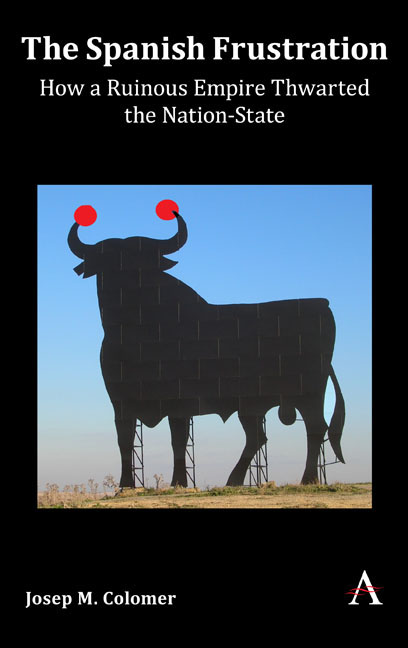Conclusion: Transitioning Outward
Published online by Cambridge University Press: 11 July 2019
Summary
This book has highlighted a number of continuities in the modern history of Spain. As we have observed that the current democratic regime is threatened by interterritorial tensions and attempts at secession, we have looked at the historical background of an incomplete nationalization of the country. We have also seen that the political game has become the field of oligarchical political parties whose representatives in government have never relied upon the support of a majority of voters. Together with the paralysis of the legislative and the particization of the judiciary ruling bodies, we have seen these features as expressions of the general low level of institutionalization and of compliance with the rule of law, both with very long traditions in the country. In the most recent period, both the people's allegiance to the Spanish nation and the electoral and social support for the governments have decreased. This seems to be the result of some unfortunate institutional choices in the 1970s, which have produced unintended effects and especially of the cumulative constraints on the state powers introduced by the European Union. But looking back, all of these fragilities can also be explained by the structural weakness of the Spanish state, whose main causal factor has been identified in this book as the Spanish imperial adventures that kept people busy— or rather distracted— for several centuries since the 1500s.
As has been reviewed in the previous pages, Spain was born with the empire led by Castile, and it broke with it. The multicontinental empire of the Spanish monarchy was not in itself a good business for the Spaniards or the Crown. But the main consequence was the missed opportunity to begin to build, instead, a modern state, like Britain and France at the time and, somewhat later, Germany and Italy did. Spain did not have the human, technical, financial or military resources to build a successful and profitable empire when it tried to do it. When, later on, new technological and economic developments permitted, or rather pushed the other mentioned countries to expand their markets, conquests and areas of influence overseas, Spain had already been defeated, left isolated and found itself entangled in a series of political messes. While Britain and France built early states, which gave them solid bases to build further empires, in Spain it was the opposite: an early empire frustrated the building of a modern state.
- Type
- Chapter
- Information
- The Spanish FrustrationHow a Ruinous Empire Thwarted the Nation-State, pp. 163 - 168Publisher: Anthem PressPrint publication year: 2019



